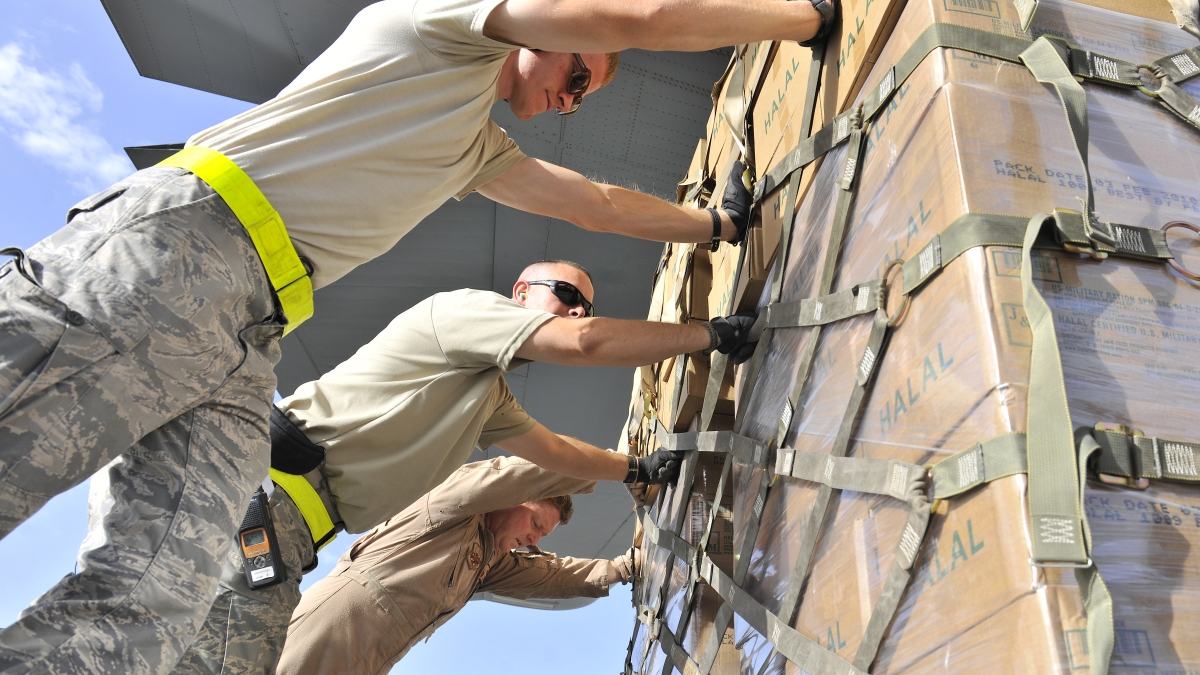Pakistan, Palestine, Nigeria and many developing countries may soon feel the pinch if the Trump administration and the British government carry out their threats to cut foreign aid. The two countries have stated they are questioning the efficacy of the funding and wonder if the money might be better spent on infrastructure projects.
The United States and the U.K. spend billions of dollars a year in assistance, but lately they are threatening to curtail their largesse when other nations don’t reciprocate. ASU Now spoke to Ambassador Michael C. Polt, senior director of next-generation leadership programs for ASU's Washington D.C.-based The McCain Institute for International Leadership, which is dedicated to advancing character-driven global leadership based on security, economic opportunity, freedom and human dignity.
Polt, the former U.S. ambassador to Estonia, Serbia and Montenegro, served under presidents from Ronald Reagan through Barack Obama.
Michael C. Polt
Question: President Donald Trump has recently voiced his displeasure with Pakistan for taking billions in foreign aid and being unwilling to pursue terrorist networks. How important is foreign aid to Pakistan?
Answer: U.S. assistance to Pakistan, amounting to roughly $1 billion in 2016, is a significant contribution to encouraging Pakistani efforts to combat terrorism and build democracy and the rule of law along with economic stability. It is no secret that for some time the United States, over several administrations, has not been satisfied with the level of effort and accountability by Pakistani authorities on behalf of these goals. It is absolutely proper for our government to exercise due diligence and control in monitoring the use of American taxpayer resources on behalf of our foreign-policy goals and in support of our declared partners in helping achieve a set of common objectives.
Q: Do you see benefit in continuing foreign aid to Pakistan and the region?
A: Yes, I do. Pakistan, Afghanistan and other regional states live in a dangerous neighborhood, and many are far from achieving their own national security and making much needed contributions to the broader stability, prosperity and democratic development of the region. Despite the clear challenges in making U.S. and other nations’ support for such efforts count and show positive results, U.S. diplomatic, military and developmental engagement remain important in support of protecting American interests.
Q: A few journalists have claimed that Trump, and more recently Britain, are using aid cuts as a foreign-policy tool to punish the recipient. Do you feel there’s any truth to this statement?
A: U.S. foreign assistance is an essential tool of U.S. foreign policy. Careful targeting of assistance programs worldwide and thorough monitoring of the effective use of assistance funds are needed to maximize the benefit to both us as donors and to the recipient nations and societies. Including foreign aid in the broader development and execution of U.S. foreign policy is every administration’s responsibility.
Q: How important is foreign aid? And if it were cut off, how significant would it be to our relationships and the stability of the world?
A: Thoughtful allocation and deployment of U.S. foreign assistance is essential, as is periodic review and adjustment, including conditionality attached to its use. Any suggestion of “cutting off” U.S. foreign assistance, a percentage of barely 1 percent of the annual federal budget, would be self-defeating and harmful to our national and global interests.
Top photo: Airmen from the 455th Expeditionary Wing push pallets of halal meals onto a cargo plane. These meals were delivered to Pakistan as part of a humanitarian relief mission. Photo courtesy of the U.S. Air Force
More Law, journalism and politics

CNN’s Wolf Blitzer to receive 41st Walter Cronkite Award for Excellence in Journalism
Wolf Blitzer, the longtime CNN journalist and anchor of “The Situation Room With Wolf Blitzer,” will accept the 41st Walter Cronkite Award for Excellence in Journalism, Arizona State University has…

Cronkite School launches Women Leaders in Sports Media live-learn program
Women in a new sports media program at Arizona State University got a solid game plan from a sports veteran at an Aug. 20 welcome event.“Be humble, be consistent and be a solver,” Charli Turner…

ASU center to host the Pursuits of Education and Excellence Symposium
The Center for the Study of Race and Democracy (CSRD) at Arizona State University is introducing the Pursuits of Education and Excellence Symposium as part of an ongoing initiative to commemorate the…

